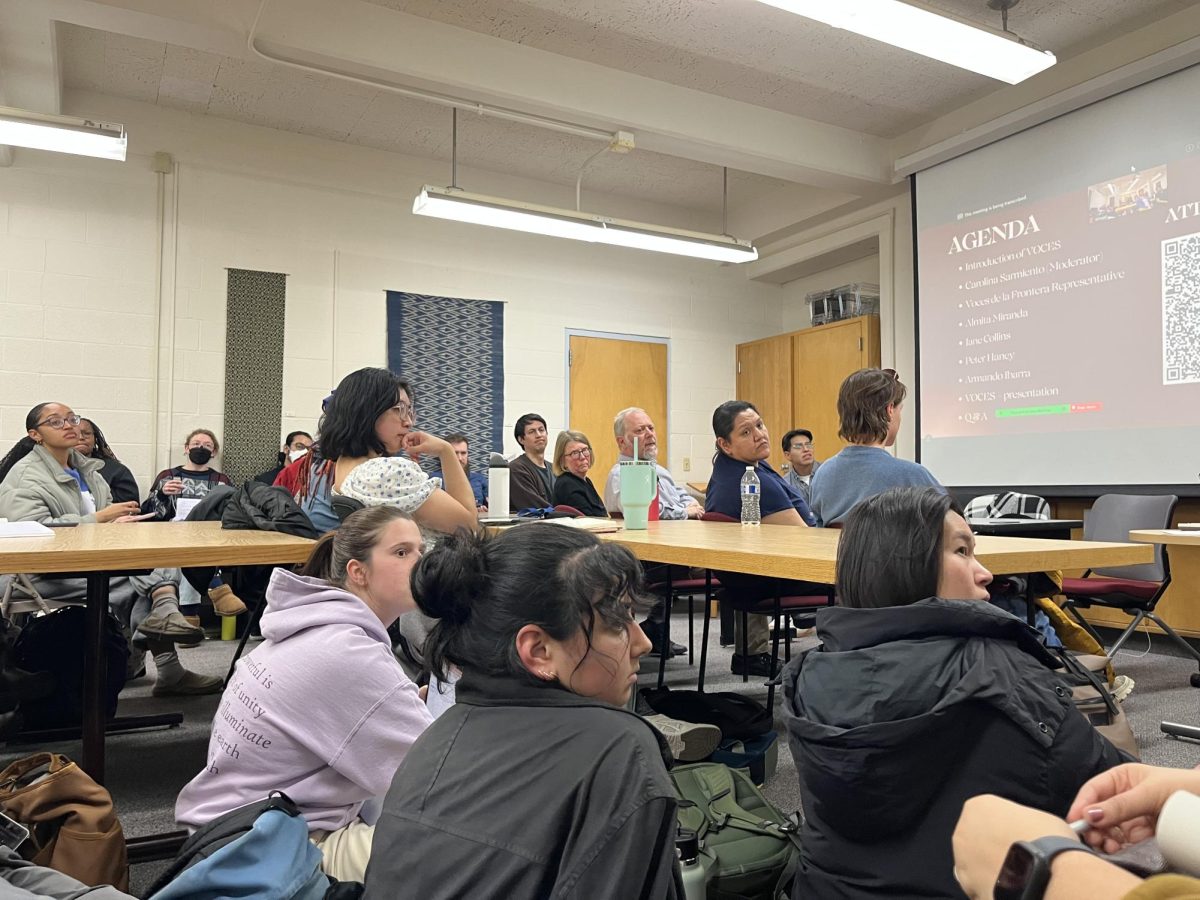The University of Wisconsin student organization VOCES, Voices of Courage, held a “Know Your Rights” panel for professors and students Tuesday. The panel focused on how to navigate potential U.S. Immigration and Customs Enforcement situations on campus.
VOCES is a non-partisan, student-led organization at UW working to promote a secure and safe environment for nearby communities that would be at risk of deportation, according to UW VOCES President Karen Romo.
Over 50 people attended the panel, including students, both undergraduate and graduate, and UW professors.
UW Chican@ & Latin@ Studies Program Administrator Peter Haney began the panel discussion by focusing on the recent revocation of visas for six current students and seven alumni at UW.
Haney said there is a significant contrast between the way that UW has responded and how other universities have responded.
For example, the University of Massachusetts-Amherst has provided details on resources for students and faculty regarding the actions of the federal government, according to Haney.
“UMass Amherst, in addition to offering support and links to counseling resources, UMass Amherst has a fund you can apply for if you’re facing immigration-related hardship … something we don’t have,” Hanley said.
The University of Massachusetts-Amherst established the Angel Fund in 2017 to support students affected by immigration changes to meet their legal, academic, housing, living and counseling needs.
Vilas Distinguished Achievement Professor, School for Workers and Chican@ & Latin@ Studies Armando Ibarra says that in the case that ICE is present on campus, the first step of action is to engage with local law enforcement or the UW-Madison Police Department.
“I just learned that many of the visas, which were revoked as of yesterday, were for minor, civil infractions,” Ibarra said. “So the first question to me was, why is Madison, if these fractions happen here, cooperating with ICE?”
When university employees in the crowd’s attendance were asked if they had been told what to do if there was an ICE presence on campus, less than half raised their hand.
Classrooms are considered a private space, meaning ICE agents are not legally allowed to enter without a warrant, Hanley said.
There are three main strategies to not only protect yourself but also promote change on this topic, according to executive director of VOCES de la Frontera Christine Neumann-Ortiz.
Neumann-Ortiz said that the first main strategy is knowing your rights and using the knowledge of these rights to build a rapid response in the case of an ICE presence.
“The second level of strategy is to ‘Know Your Rights’ for yourself and to be in solidarity with others,” Neumann-Ortiz said.
VOCES trained over 14,000 people on rapid response, and ongoing regional training services are being offered, according to Neumann-Ortiz. It is not just to receive the training but to provide the training.
The third strategy is building a rapid response statewide, according to Neumann-Ortiz.
The purpose of rapid response is to empower advocates and volunteers to connect with community members experiencing an ICE raid and deploy a coordinated response to the situation, Neumann-Ortiz said.
In honor of May Day, Voces de la Frontera will be hosting two rallies, one on May 1 and another on May 2, demanding justice for the immigrant and working community.
“The only way to get through this is through connecting with each other, using the knowledge of our rights,” Neumann-Ortiz said.
The panel also welcomed two attorneys to speak about individual rights in confrontations with ICE agents or other law enforcement. Community Law S.C. Managing Attorney Oren Jakobson said the main thing individuals can do to protect themselves is to not say anything to anyone under any circumstance.
“With respect to your right to silence, it means actual silence,” Jakobson said. “You being silent does not require them to stop doing anything that they’re doing.”
Due to recent changes, a simple arrest by a local law enforcement agency is now being input into databases that the federal government has access to, according to Jakobson.
Jakobson and the panel encourage students to reach out to the UW Office of Legal Affairs asking questions on university policies regarding immigration.



